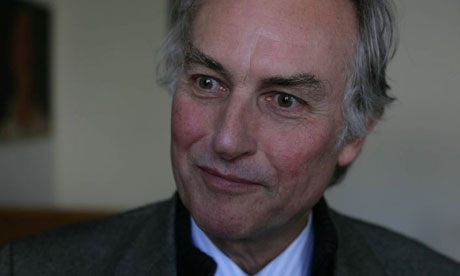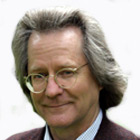
25/09/2008
Religion and Finance
Eamonn Butler of the Guardian sorts them out in this story. The regulators are to blame and the ban on short-selling is unlikely to have a lasting result. A voice of reason in this issue at last.
Anti-vaccination
I find it disgusting that people try to prevent it from taking place. May the loss of life be on their concious. The story of one Catholic school (St Monica's High School) preventing the new cervical cancer immunisation is pathetic. Metro this morning quoted the school as saying that the jab could 'encourage sexual promiscuity'. Well I do not know of anybody who is not being sexually promiscuous solely because of the risk of cervical cancer, and I doubt that you do either.
A little bit further in today's Metro is a story under the headline 'Measles alert as half of children miss MMR'. if you don't have the jab then you are at risk of a nasty disease, with a fatality rate of about 1 in 100. Worse, you are putting other people at risk by spreading the disease. These people need to grow up. Sadly it may take a number of people to suffer and die before people are willing to return to vaccination.
Dogs and mosques
Neither. It is plainly ridiculous that a dog is in some way 'unclean' in the first place. Is that not just saying that an all-powerful being made a bit of a mess of it when creating our canine companions?
Science and Religion (again)

This article by Mark Lawson was originally posted here. It contains some things that need to be commented on.
Religious believers, when mentioning heaven, have traditionally cast their eyes skywards, but the possibility of an afterlife may now be proved by looking down towards the ground. Doctors at Southampton University are placing pictures in resuscitation areas that can only be seen from the ceiling. These will test the stories of defibrillated patients, who claim they have looked down on the crash teams attending to their lifeless bodies.
This is a pretty good experiment, as long as everybody besides the researches has no clue what the pictures are. Proper double blind trials and all....
The theory is that any of the chest-thumped who successfully play this posthumous game of Where's Wally? must have had an out-of-body experience, rather than the final flashing fantasy of a dying brain.
I's put money on the fantasy, but hopefully this will set the matter straight once and for all. However even if the fantasy theory is the one that fits the evidence I doubt whether some people will change their tune to match.
And this attempt by a scientific profession to test the claims of religion coincides with a less constructive standoff between rationalists and supernaturalists, namely the forced resignation of Professor Michael Reiss, director of education at the Royal Society, after it was reported that he was in favour of "creationism" being discussed in school science lessons. What's whiffy about this incident is the strong suspicion that Reiss, an ordained minister, has been brought down by atheists in the Royal Society who consider religious belief incompatible with scientific practice.
I think that there are plenty of people who consider the two incompatible. If you claim to be part of any religion that I have so far had the misfortune to hear about then the beliefs are incompatible. If you just claim to have some sort of personal god then they may not be.
A fair interpretation of his comments is that he was addressing a serious issue affecting education in a culture which is largely secular, but where a small core of students may profess certain religious beliefs. He was suggesting that scientists should engage and argue with believers, rather than mock or ignore them.
I'm sure we've tried to engage with them before. The greatest thing about science is progress - ideas and theories change with new evidence. The same cannot be said of organised religion.
Such an attempt to subject supernatural beliefs to empirical testing lies behind the resuscitation unit art show. But an objection to the project is that it suffers from the scientific tendency to believe that anything can be proved one way or another. If any of the patients do prove to have seen art from on high, sceptics will hint darkly at collusion with a hospital cleaner. If they don't see them, church-goers will conclude that God cannot be trapped by a brain scan.
I said about double-blind trials, that would eliminate this source of error.
Many people, whatever happens, will remain "don't knows", and this is a smart group to belong to. Both the theories of evolution and quantum physics stumble over the question of first cause: the process by which nothingness became something. It's this zone of unknowability that leads to physicists using such loaded language as "the God particle" and has made evolutionists, especially in the US, vulnerable to the counter-dogma of "intelligent design".
at least scientists are attempting to solve the problem. Religion does not. If there is a god and he was half as intelligent as I am regualrly told, then he would be pondering the reason for his own existence. Religion does not attempt to solve the problem, it just passes the buck to a fictional figure.
Dr Sam Parnia, one of the curators of the crash room gallery, has said: "This is a mystery that we can now subject to scientific study." But, in that sentence, "mystery" is the crucial word. Religion speaks of the "sacred mysteries" - to which an explanation is promised after death - but it has always seemed vital to me that those who reject the sacred continue to respect the mysteries of how and why we are here.
It is mysteries that creates scientists. Scientists love mysteries. Then they try and solve them, which almost inevitably leads to more mysteries.
An interesting experiment in this context involves Richard Dawkins and David Attenborough. They have almost identical beliefs on Darwinism and religion, but their attitudes are radically different: the naturalist retains an element of wonder at the beauties and cruelties of existence that the biologist seems to lack. The possibility of doubt is an important part of belief and unbelief.
This is bollocks of the highest degree. Dawkin's 'Unweaving the Rainbow' shows a genuine love for the natural world, and the science that tries to understand it. If you didn't love the natural world then you would find it very hard to be a scientist.
The novelist Terry Pratchett is exemplary in this respect. Long a proud trophy of the British Humanist Society, the writer recently had the experience of hearing the voice of his dead father telling him all will be well. The fact that this followed diagnosis with a variant of Alzheimer's must increase the possibility that Pratchett's brain was playing tricks on him, but his recent interviews reflect a dent in his scepticism. Both the religious and the scientific should admit to the gaps on their canvases.
Science does admit the gaps. That is the primary difference between it and religion. Scientists are fully aware, and readily admit, that they don't know everything. That is why they still have jobs, there is still stuff to be found out. Yes, we have no explanation at the moment for the cause of the big bang, but that's no reason not to look for one!
Opus Dei University?
23/09/2008
Why God Never Received a PhD
2. It was in Hebrew.
3. It had no references.
4. It wasn't published in a refereed journal.
5. Some even doubt he wrote it by himself.
6. It may be true that he created the world, but what has he done since then?
7. His cooperative efforts have been quite limited.
8. The scientific community has had a hard time replicating his results.
9. He never applied to the ethics board for permission to use human subjects.
10. When one experiment went awry he tried to cover it by drowning his subjects.
11. When subjects didn't behave as predicted, he deleted them from the sample.
12. He rarely came to class, just told students to read the book.
13. Some say he had his son teach the class.
14. He expelled his first two students for learning.
15. Although there were only 10 requirements, most of his students failed his tests.
16. His office hours were infrequent and usually held on a mountain top.
17. No record of working well with colleagues
18/09/2008
Of Mice and Muslims
I have no idea why some religions seem to have obsessions with avoiding certain kinds of animals. Perhaps it originates with a basic knowledge of the fact that some may damage food and spread disease.
Steve Wells from Dwindling in Unbelief did some digging, and found that although not mentioned in the Koran, mice are permitted to be killed in the Hadith. The Old Testament god also seems to have had some issues with them, despite (as it happens) the fact that he surely created them?
Dawkins banned in Turkey

Another example of 'they've got a better argument then we have, better censor them', again taken from the Guardian. You don't get many atheists trying to censor religious works, probably because most atheists have an intellectual freedom that is unchallenged by dogma.
Creation myths belong in History Lessons

Head over to the guardian.co.uk website to see AC Grayling's latest. He argues that the only place that creation myths belong is in the History lessons of secular schools. He is right that much of our culture is based upon these myths, and the study of literature (for example) depends upon a certain basic knowledge of Christaniy as well as Greek and Roman gods.
Some good quotes too:
"...it is only an accident of history that religion is regarded as somehow more respectable than astrology or ouija boards, despite being no different in degree of credibility than they."
"..now everyone wants your and my tax money to bring up their children in their own version of the religions that sit on the creation myths that no sensible person wishes to be passed off on a child as any part of the truth about the world."
"The best solution is to put religion where it belongs: in the history curriculum of non-faith-based schools where religion is no longer a compulsory observance at assembly or any other time."
Right to bare breasts?
I also think that some races, on average, are better at others than certain things. Certainly some sports are dominated by people of certain ethnicities. I doubt anybody argues with that. So why would there be an uproar if anybody of sufficient importance suggested, even with evidence, that people of a certain ethnicity were, on average, terribly poor at mathematics? These abilities would be down to genetics - something that we can't change - so why not embrace them? Or at least let them guide our decision making.
Men and woman are clearly biologically different. Intellectually they may be equal, but physically men are generally stronger. There is nothing we can do about this. But what about equal rights when it comes to going bare chested in public? Should women be allowed to if they choose?
I take the line of Jessie Whitfield, it really doesn't bother me if they do. If we take equal rights to its obvious conclusion then it seems inevitable. So what is stopping women from legally being allowed to?
I bet that there is a large slice of Bronze Age values courtesy of the Old Testament thrown in somewhere! I find it hard to see why people need to be protected from breasts - people suckle from them as children, so when does it suddenly become offensive to see them?
16/09/2008
Apply the scientific method to other disciplines
"Darwin was, in many ways, a model of good scientific method. He observed the world around him, developed a theory which sought to explain what he saw, and then set about a long and painstaking process of gathering evidence that would either bear out, contradict, or modify his theory. As a result, our understanding of the world is expanded, but the scientific process continues. In science, hypotheses are meant to be constantly tested. Subsequent generations have built on Darwin’s work but have not significantly undermined his fundamental theory of natural selection."
The scientific method is in fact a bit of a misnomer. It could easily be the "hisotrians' method", assuming the historians in question did their job properly. Or the "archaeological method". Or the "engineers' method". Or the "cacti cultivation method"
The scientific method is the process by which theories are generated from the facts and by which predictions are made that are compared to facts discovered in the future. The process of finding these 'future facts' is experimentation.
If you think that historians don't do experiments then you are wrong. They do! But even they might be unaware of it. A concept in history is a prediction: 'given the evidence that I have I think that what happened was...'. The acquisition of new facts, after the prediction has been made, is an experiment. You are testing whether your prediction stands up to this new found knowledge.
So any discipline that generates empirical facts, and evidence based theories uses the scientific method. The writing of literature does not. Art does not. They may comment on them, but they do not generate them.
Religious scholarship can, and should, be part of this scientific method. Predictions can be made about biblical texts: 'if this flood happened we should expect flood debris over this part of the Earth, let's look'. When religious scholarship is done properly it undermines the authenticity of any religion it has so far covered.
15/09/2008
More Darwin!

Darwin certainly seems to be in vogue today! Thanks to the Beagle Project blog I now know that today is the 173rd anniversary of Darwin's arrival in the Galapagos!
Pictures

The blog seemed to be short of pictures, so I thought I'd add this. While you can buy these, I would prefer a subtly different version - without the fish.
Surely that would ruin the joke? Only if taken in isolation. I want the text and the legs only - so that I can then add them to other people's fish!
Royal Society soft on god?
"We badly need our premier scientific society to stand firm and present a clear vision of how our planet, our species, and the cosmos came into existence. It needs to be unequivocal about the wonders of nature as revealed through rational, scientific investigation. As Douglas Adams put it: 'Isn't enough to see that a garden is beautiful without having to believe there are fairies at the bottom of it too?'"
Church apologises to Charles Darwin
This is one small step of progress, however there is a long way to go. I can't imagine this coming from other, more fundamental, sections of Christianity.
Spore Lunacy
12/09/2008
Christian Retardism
They plan to issue a report saying that: (1) Darwinian evolution does not necessitate atheism, and (2), Christianity and Darwinian evolution are compatible.
On point (1) they have a small point, a god or gods could have created the universe, or even given life a kick start. Although as a scientist this idea is plainly ridiculous. If this universe has a creator then he or she would be pondering their own origins in the same way we are. The god hypothesis just creates another level of complexity in the quest to discover the origins of life and the universe - apply Occcam's razor and just don't believe in it.
Point two is absurd, unless you ignore the bible. Correct me if I'm wrong but right at the start it says that the big man created all life forms, and gave man dominion over them. This is clearly not the Darwinian line.
This is a religion destroying its own foundations so that it might fit in with empirical truth.
ShareThis
Copyright Ed Baker







